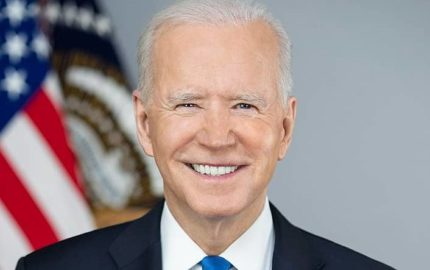President Joe Biden’s performance in the first debate on Thursday has ignited a wave of criticism within the Democratic Party. Public and private discussions are now emerging about whether he should remain the party’s candidate for the 2024 election. This debate marks a significant moment in political history, as no national party has ever attempted to adversarial replace its nominee in the modern era. The notion of replacing a sitting president as the party’s nominee is fraught with complexity and potential fallout.
Party rules make it nearly impossible to replace nominees without their consent, a safeguard that preserves the integrity of the primary process. This issue was considered by both major parties in the 2016 election cycle, but neither took action. The rules are designed to prevent party insiders from overturning the results of the primaries, a scenario that would undermine the democratic process by which Biden was overwhelmingly nominated, securing nearly 99% of all delegates. Despite the ongoing debate, there is no known serious effort within the party to remove him from the ticket at this time.
The Democratic National Committee’s Contingency Plans
The Democratic National Committee’s (DNC) charter includes provisions for instances where the party’s nominee is incapacitated or opts to step aside, though such an occurrence is highly unlikely. If President Biden were to decide to withdraw from the race, a scenario he has repeatedly dismissed despite various campaign challenges, it would trigger a highly competitive process among potential candidates. This echoes the precedent set by President Lyndon Johnson in 1968, who withdrew from the race while continuing to serve out his term.
Should Biden step down before the formal nomination in August, it would lead to a tumultuous period within the Democratic Party. With no mechanism in place for Biden or any other figure to anoint a successor, the nomination would be up for grabs. The party’s approximately 4,000 pledged delegates, of whom Biden won 3,900, would play a crucial role in selecting the new nominee. Under recent reforms, the more than 700 superdelegates—comprising Democratic lawmakers and dignitaries—would only vote if no candidate secures a majority on the first ballot, making their input potentially decisive in a contested convention.
Virtual Nomination and Ohio Ballot Complications
A unique twist to this year’s nomination process is the decision to virtually nominate Biden ahead of the late-August convention. This move was prompted by complications with ballot access in Ohio, where a technical quirk threatened Biden’s placement on the ballot. Despite Republicans eventually passing legislation to shift the deadline, Democrats opted to proceed with a virtual nomination to avoid any potential issues.
The virtual nomination strategy is a precautionary measure to ensure that Biden remains on the ballot, despite the convention falling after Ohio’s state deadline. This decision reflects the party’s commitment to maintaining stability and continuity amid an election cycle fraught with unprecedented challenges. As the Democratic Party navigates these turbulent waters, the focus remains on presenting a united front to voters, ensuring that the nomination process proceeds smoothly and in accordance with established rules and reforms.
while President Biden’s recent debate performance has sparked discussions about his candidacy, the Democratic Party faces significant procedural and political hurdles in replacing him. The DNC’s contingency plans and the decision to virtually nominate Biden underscore the complexities of this unprecedented situation. As the 2024 election approaches, the party must balance internal debates with the broader goal of maintaining electoral viability and coherence.
Could Democrats Replace Biden Against His Will?
Despite growing speculation about President Joe Biden’s candidacy, there is currently no evidence suggesting that the Democratic Party would consider replacing him without his consent. The loyalty of the party’s delegates plays a crucial role in this scenario. Delegates are selected based on their commitment to the candidate, and in Biden’s case, they have pledged their support at the upcoming convention. This pledge is a fundamental aspect of the Democratic Party’s nomination process, designed to ensure unity and consistency in support of the chosen candidate.
However, the situation is not entirely without its complexities. Unlike their Republican counterparts, Democratic delegates are not technically bound to their candidate. According to the Democratic National Committee (DNC) rules, delegates are allowed to “in all good conscience reflect the sentiments of those who elected them.” This clause provides some flexibility, implying that if a significant portion of the party were to lose faith in Biden, delegates could theoretically defect en masse. But such a drastic move remains highly unlikely given the delegates’ initial selection based on their loyalty to Biden.
The Absence of a Mechanism for Pre-Convention Replacement
Even if the Democratic Party were to entertain the idea of replacing Biden, the practicalities of such a move present significant obstacles. The current party rules do not provide a clear mechanism for replacing a candidate before the national convention. The convention itself serves as the official venue for nomination, and any attempt to anoint a successor outside this process would be unprecedented and fraught with logistical and legal challenges.
The lack of a pre-convention replacement mechanism underscores the importance of the convention in the Democratic nomination process. It is at this event that delegates officially cast their votes, and any significant shift in support would be visible. Without Biden’s consent, any attempt to replace him would likely lead to a fractious and divided party, undermining the cohesive front needed for a successful election campaign. Therefore, while theoretically possible, replacing Biden against his will remains a highly improbable scenario, given the party’s current structure and rules.














